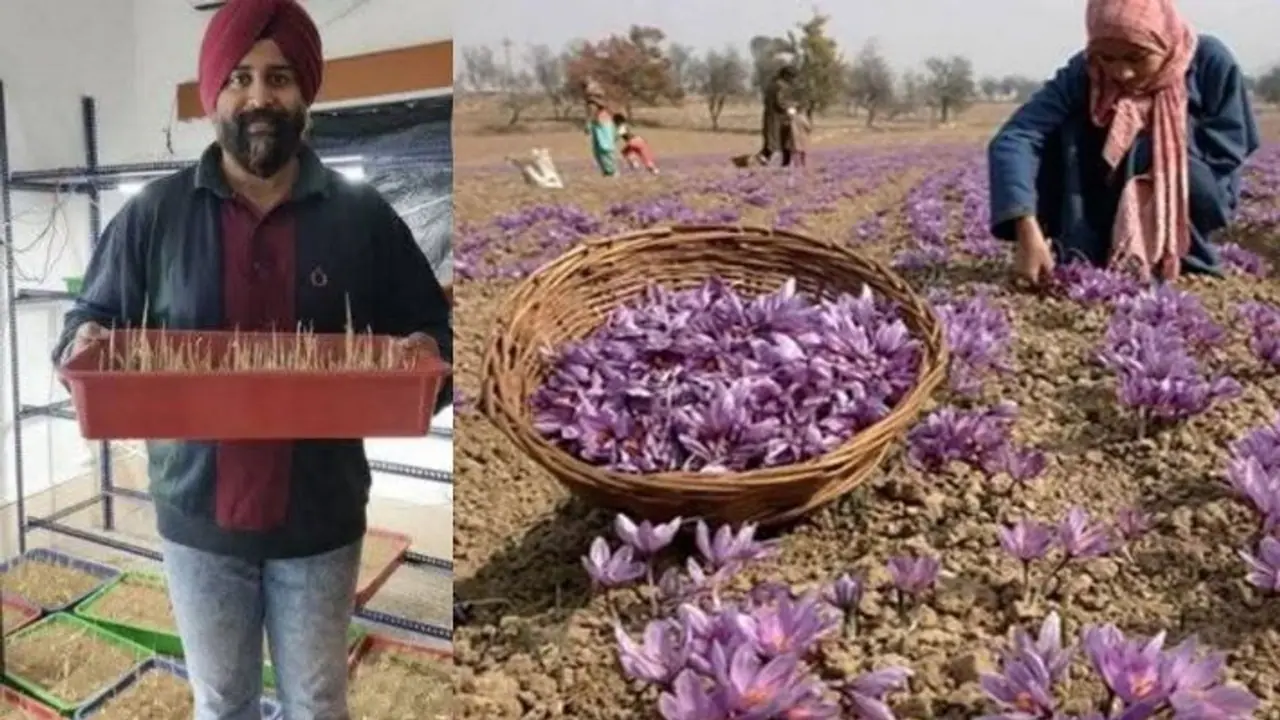An engineer from Rajasthan successfully cultivated saffron at home using a low-cost method. By recreating a perfect environment, he grew saffron in just three months with an investment of only Rs 25,000-Rs 40,000.
Gurkeerat Singh Broca, an electronics and communication engineer from Ajmer, Rajasthan, successfully cultivated saffron at home by recreating an environment similar to Kashmir. Using an affordable method, he grew saffron in just three months. He sourced saffron corms from Kashmir and converted a room into a lab-like cold room by installing a 2-ton air conditioner. The temperature was carefully maintained between 10 to 12 degrees Celsius, and mobile phone light was used to inspect the corms.
Also read: How two brothers from Haryana started a Kashmiri saffron business from home
Homegrown saffron
After planting the corms in September, buds began to appear in October, and by December, the saffron flowers were ready for harvest. Gurkeerat used an air conditioner and simple gadgets to achieve saffron production with an investment of only Rs 25,000 to 40,000. This initiative showcases the potential of advanced agricultural practices with minimal expenditure.
Also read: How to grow saffron at home
Reaping the benefits
He tested the soil at the local soil office and added vermicompost to improve its quality. Additionally, he conducted purity tests at home, discovering that genuine saffron retains its colour in water for a longer time, while fake saffron loses its colour quickly. This process highlights how innovation and technology can facilitate high-quality agriculture at the household level.
What is Vermicompost?
Vermicompost is a type of compost made by worms that break down food scraps and plant material. These worms, usually red wigglers, turn the waste into a rich, nutrient-filled soil that helps plants grow better and improves soil quality.
You can make vermicompost at home. All you need is a small bin, some earthworms, and organic waste like fruit and vegetable scraps. The worms eat the waste and turn it into compost. With the right care, you can create your own natural fertilizer to use in your garden.
Also read: This nurse quit her job to start a vermicompost business; makes Rs 24 lakh in a year now
